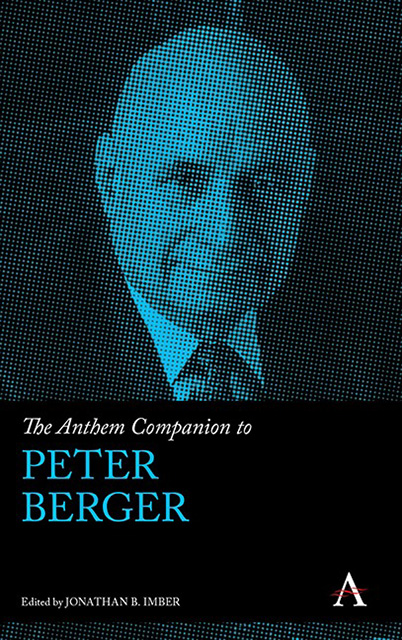Book contents
- Frontmatter
- Contents
- Introduction
- Chapter 1 Plurality, Choice, and The Dynamics of Doubt
- Chapter 2 Peter L. Berger and The Challenge of Modern Pluralism
- Chapter 3 Making Peace With Pluralism In America
- Chapter 4 Religion and Secularity in A Desecularizing Russia
- Chapter 5 The Moral Limits of Religious Pluralism
- Chapter 6 Peter L. Berger and Arnold Gehlen: Secularization, Institutions and Social Order
- Chapter 7 Peter L. Berger’s Three Religions
- Chapter 8 Objectivation: The Material Heritage of Peter L. Berger
- Chapter 9 Peter L. Berger’s The Social Construction of Reality
- Chapter 10 The Untaken Road to Phenomenological Sociology
- Chapter 11 Cheering for Capitalism
- Chapter 12 Peter L. Berger and Economic Sociology
- Chapter 13 Peter L. Berger Changed The Direction of My Work … and My Life
- Chapter 14 Peter L. Berger On Religion as Choice Rather Than Fate
- List of Contributors
- Index
Chapter 14 - Peter L. Berger On Religion as Choice Rather Than Fate
Published online by Cambridge University Press: 17 October 2023
- Frontmatter
- Contents
- Introduction
- Chapter 1 Plurality, Choice, and The Dynamics of Doubt
- Chapter 2 Peter L. Berger and The Challenge of Modern Pluralism
- Chapter 3 Making Peace With Pluralism In America
- Chapter 4 Religion and Secularity in A Desecularizing Russia
- Chapter 5 The Moral Limits of Religious Pluralism
- Chapter 6 Peter L. Berger and Arnold Gehlen: Secularization, Institutions and Social Order
- Chapter 7 Peter L. Berger’s Three Religions
- Chapter 8 Objectivation: The Material Heritage of Peter L. Berger
- Chapter 9 Peter L. Berger’s The Social Construction of Reality
- Chapter 10 The Untaken Road to Phenomenological Sociology
- Chapter 11 Cheering for Capitalism
- Chapter 12 Peter L. Berger and Economic Sociology
- Chapter 13 Peter L. Berger Changed The Direction of My Work … and My Life
- Chapter 14 Peter L. Berger On Religion as Choice Rather Than Fate
- List of Contributors
- Index
Summary
During the height of the Vietnam War, in 1968, I graduated with a BA in sociology, and I had hoped to continue as a sociologist. I had planned on accepting one of several offered fellowships for a sociology graduate program to either Berkeley or the University of Pennsylvania, but because of the army draft which would have made that impossible, I instead went to study in a yeshiva in Brooklyn, where I would be granted a divinity deferment from the army. As a result, the only way to continue studies in sociology was to simultaneously go to the Graduate Faculty of the New School for Social Research, where the classes were all in the evening, when the yeshiva was closed. The faculty members there were excellent, and it was there I first encountered Peter Ludwig Berger, whose life and work I wish to recall here. Commuting between the yeshiva and the New School, I moved between a totally Jewish environment and something quite different. I felt this especially when in Berger’s classes, where I learned—among other topics—about modernity and its effect on the changing nature of pluralism, religion, the impact of culture on knowledge and worldview. He seemed to me like a German Jew, with an accent that reminded me of many I’d met but I quickly learned he was Lutheran. His work always struck me as powerfully relevant to my interests (perhaps because one of his teachers, Carl Mayer, was mine too and helped shape my own understanding of sociology).
If where I have come from shaped me, I assume it no less likely than where my teachers came from shaped them. While it would be a mistake to reduce the large themes that Berger explored to projections of his biography, I would like to focus on certain events in his life, in particular, the formative years of his adolescence, which I believe structured and constructed some of the interests that drove him to these subjects. That is my purpose here. It is also an opportunity for me to share a late-in-life discovery I made about him.
- Type
- Chapter
- Information
- The Anthem Companion to Peter Berger , pp. 153 - 170Publisher: Anthem PressPrint publication year: 2023

